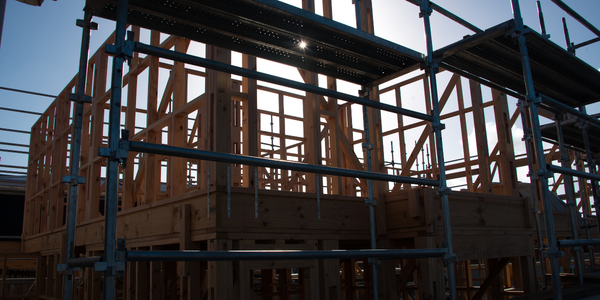
The 2022-2023 Federal Budget was unveiled earlier this week on October 25.
The first delivered under the Albanese government, focuses primarily on addressing inflation and strengthening the Australian economy amidst the many challenges and uncertainties currently impacting global markets.
The Federal Budget also includes major spending for families, health care, aged care, the NDIS and, of course, housing.
Several measures designed to boost and support the real estate sector across Australia have been outlined in this latest Federal Budget. Through these measures, the government is looking to have a much more positive impact on buyer demand, property values, vacancy rates and returns from property investments.
But how will these measures be implemented? Will the recent Federal Budget provide a win for the buyer, the seller, or both? What else can we look forward to for real estate over the coming year?
To answer these questions and more, let’s take a quick look at the elements of the Australian Federal Budget 2022-2023 that are set to have the biggest impact on real estate and housing here in NSW.
Key points from the 2022-2023 Federal Budget for the property market
- $324 million towards the Help to Buy shared equity scheme
What is this about?
Under the Help to Buy shared equity scheme, the Federal Government will assist 10,000 Australian home buyers each year to purchase a home.
This scheme allows eligible buyers to purchase a home with as little as a 2% deposit, with the Federal Government set to contribute up to 40% of the purchase price for a new property, or 30% for an existing home, to co-purchase the property with them.
What is the expected impact?
The Help to Buy shared equity scheme will help individuals earning less than $90,000 and couples earning no more than $120,000 to get into the housing market with a much smaller deposit than what’s normally required.
Over time, the homeowners can then choose to either buy out the government or pay out their share when the property is sold.
- Increased incentives to downsize
What is this about?
The Federal Government intends to allow more older Australians to take advantage of the downsizer superannuation contribution, reducing the minimum eligibility criteria from 60 to 55 years of age.
The downsizer scheme allows eligible Australians to make a one-off post-tax super contribution of up to $300,000 per person from the proceeds of selling their home.
What is the expected impact?
The downsizer super scheme will encourage more older Australians to downsize so that more housing stock can be made available for younger families looking to buy.
- $8.1 billion for road and rail infrastructure
What is this about?
$8.1 billion has been allocated to new and existing road and rail infrastructure projects over the next 10 years.
In New South Wales alone, $1.4 billion has been set aside to fund projects like the high-speed rail line between Sydney and Newcastle, the Western Sydney Roads Package and the New England Highway.
What is the expected impact?
Improving road and rail infrastructure will not only boost job opportunities and local economies, but it will also make housing in the outer suburbs and regional areas much more accessible for more people.
- A National Housing Accord to build 1 million homes
What is this about?
The National Housing Accord is an agreement between Federal, State and Local governments, institutional investors, superannuation funds and the construction industry to build one million new homes over a 5 year period from 2024.
As part of this agreement, the Federal Government will allocate $350 million to deliver 10,000 affordable dwellings with an energy efficiency rating of 7 stars or greater.
What is the expected impact?
According to the Australian Institute of Health and Welfare, 116,000 people living in Australia are homeless and there are currently 163,000 individuals on the waiting list for public housing. Rents have also increased in the past year due to low housing supply.
The National Housing Accord aims to boost the supply of affordable housing to help solve these issues and address the gap between market rents and subsidised rents.
- The Housing Australia Future Fund
What is this about?
$10 billion from the Federal Budget has been allocated to the creation of a Housing Australia Future Fund, which will be managed by the Future Fund Management Agency.
What is the expected impact?
The fund aims to generate returns that will be used to deliver 20,000 social housing properties and 10,000 affordable homes over the first 5 years. $330 million from the fund’s returns will also be utilised for acute housing needs – supporting remote indigenous communities, women and children who are victims of domestic and family violence, as well as homeless veterans.

Additional measures put in place to support real estate and housing
As well as the key points mentioned above, the Australian Federal Government’s 2022 Budget has also allocated funding to several other initiatives designed to drive housing supply and help low-to-middle-income earners get their foot in the door of the housing market.
$15.2 million has been allocated to establish the National Housing Supply and Affordability Council, which will collect valuable data and provide independent advice on housing policy, supply and affordability.
The Federal Government’s new Budget has also allowed the National Housing Infrastructure Facility to allocate up to $575 million to build over 5,500 new dwellings and accelerate housing supply.
10,000 places will also be made available each financial year to assist eligible regional first homebuyers in purchasing a new or existing home with a deposit of as little as 5%.
$46.2 million has also been directed towards the Defence Home Ownership Assistance Scheme to assist current and former defence personnel to purchase their own home, while $13.4 million has been allocated over 4 years to develop a National Housing and Homelessness Plan to address the challenges and set out reforms around housing and homelessness in Australia.

We’ve got plenty to look forward to over the coming months
While we are yet to experience the full effect of this new Australian Federal Budget, the property market remains ever-changing, meaning it’s essential to ensure that you get the right property advice from the real estate experts.
At Upstate, we’re committed to delivering the most comprehensive service, adapting to the evolving commercial real estate market and accommodating the growing needs of our clients.
Our team combines reliable market research with years of experience and expertise to determine your best course of action – whether you’re looking to purchase a new property or planning to sell your existing one.
We’re skilled, agile, client-focused and tech-savvy. We do things differently – and it’s all for your benefit.
Find yourself in a better place with Upstate
Here at Upstate, our real estate specialists can make your property goals come true. That’s because we’re a big agency, with the heart and determination of a boutique one.
Speak to your local Upstate team today and we’ll show you the possibilities that earn excellent results. We look forward to chatting with you soon.
The Upstate Team
* While we make every reasonable effort to maintain current and accurate information on this site, users should be aware that Upstate accepts no responsibility for the accuracy or completeness of any material contained on this site and recommends that users exercise their own skill and care with respect to its use. The information in this blog reflects the Budget Papers October 2022-23 released by the Commonwealth.






